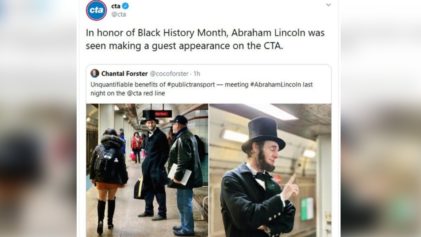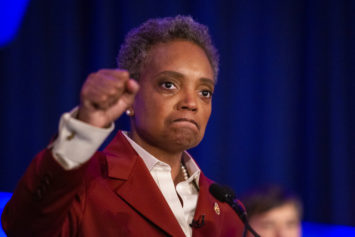Chicago Teachers Strike – As if a city with a soaring murder rate that makes it statistically more dangerous to Americans than Afghanistan didn’t already have enough problems.
Chicago’s growing list of serious issues that demand immediate attention added another big one to the list on Monday when the city’s school teachers went on strike for the first time in 25 years.
“Negotiations have been intense but productive, however we have failed to reach an agreement that will prevent a labor strike,” Chicago Teachers Union President Karen Lewis said at a dramatic Sunday evening press conference. “Real school will not be open [Monday]. … No CTU member will be inside our schools.
“Please seek alternative care for your children.”
Mayor Rahm Emanuel blasted the teachers’ decision as “a strike of choice” that didn’t have to happen if talks continued. He repeatedly declared: “My team is available now.”
Talks between the two sides are expected to resume today.
Emanuel said he was “disappointed” by the decision to strike, calling the latest deal offered was “very respectful of our teachers and is right by our children.”
“The issues that remain are minor,” Emanuel said. “This is totally unnecessary. It’s avoidable and our kids don’t deserve this. … This is a strike of choice.”
According to the mayor, the two remaining stumbling blocks to be resolved involve the re-hiring of laid off teachers from schools that get shut down or shaken up and a new teacher evaluation process that the union says puts far too much weight on student test scores.
Other issues included the need for smaller class sizes, more libraries, air-conditioned schools, and more social workers and counselors to address the increasing needs of students surrounded by violence.
Sunday night’s drama was a roller coaster for teachers, parents and students, all of whom were left wondering whether students would be greeted by teachers in classrooms or on picket lines. Teachers have been asked to picket outside their own schools.
Progress had been made over the weekend regarding teacher pay, but not enough on teacher evaluations, job security or classroom conditions to entice union members to sign a contract.
“We do not intend to sign an agreement until all matters of our contract are addressed,” Lewis said. “We are committed to staying at the table.”
The school board’s most recent offer included a three percent raise the first year and two percent raises the next three years, marking a slight increase from an earlier offer of two percent raises in each of the next four years.
The package, which would cost $400 million, keeps increases for experience and credentials with some modifications.
Vitale said the contract amounted to a 16 percent raise over four years for the average teacher when factoring other increases. And the raises could not be rescinded, even for lack of funds. That happened this past school year, angering teachers and helping to set the stage for Monday’s strike.
A $1 billion deficit awaits the system at the end of this school year, officials have estimated. The cash-strapped district drained its reserve funds to plug this year’s budget.
The strike will not impact charter schools, which rely on non-CTU teachers.
In an effort to help parents with no other childcare options, CPS has plans in place to open 144 schools with non-union personnel from 8:30 a.m. to 12:30 p.m. for the duration of the strike.
Churches and other not-for-profit organizations have also volunteered to help so that children would not be left on Chicago’s violent streets that have easily already claimed more American lives (357) this year than the war in Afghanistan (221).


